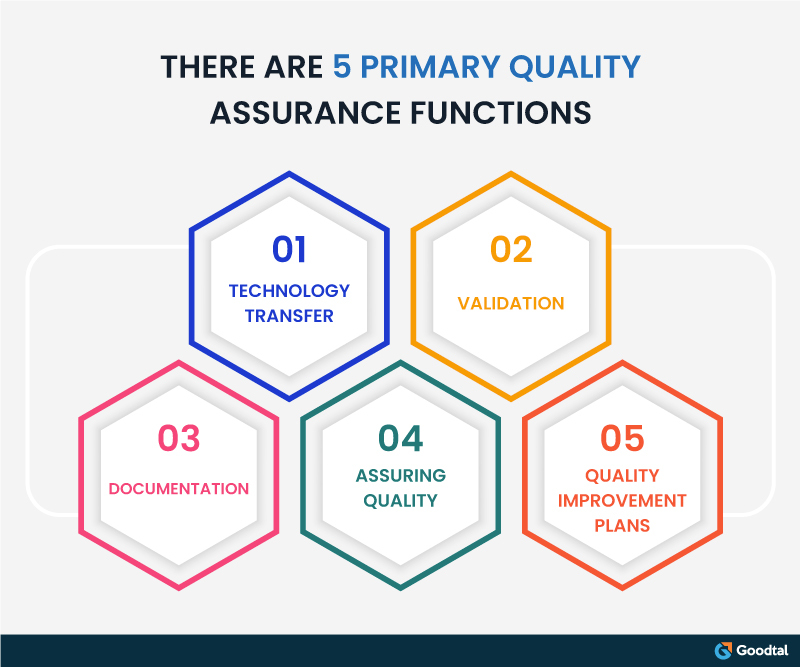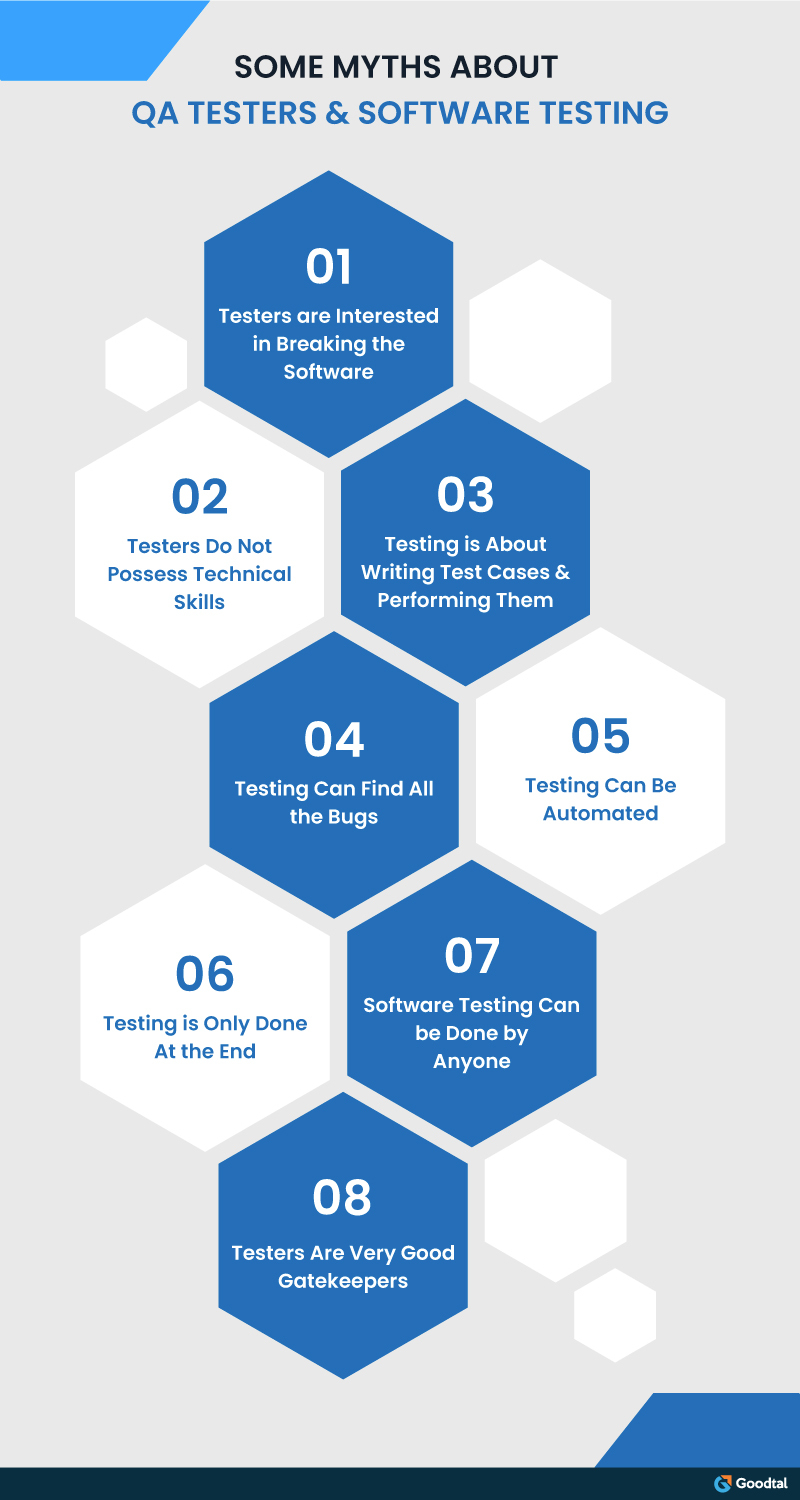
Quality Assurance (QA) is a necessity in all industries, no matter whether it is the manufacturing or services sector. Without QA, consumers or clients will not buy the product/service and will go for other companies who have stringent Quality Control standards. In the IT industry, Software Testing is done extensively to identify bugs and remove all of them before the Software is deployed on-site.
“Software Testing market size exceeded USD 20 billion in 2020 and is expected to grow at over 7% CAGR from 2021 to 2027.” - Global Market Insights
For Software Testing, IT companies have a dedicated team responsible for discovering all the bugs and irregularities in the code. Thus, QA Testers are an essential cog in the wheel of software development and indispensable. QA Testers should have knowledge of various programming languages & automation testing tools. It will be a big mistake if a Software Development firm hires below-par QA Testers or does not have the required strength.
Gone are the days when software testing was a manual process with QA testers trying to discover all possible bugs. With automation testing tools like Selenium, testing has become less cumbersome. Some software can have thousands of lines of code, and checking it manually can take months. As Software Development firms have tight deadlines for projects with other projects waiting in the pipeline, QA teams do not have much time to do their work efficiently. This makes it necessary that QA testers should be hired after a thorough screening process.
Difference Between Quality Assurance (QA) & Quality Control (QC)
Quality Control (QC) is about checking the product or service and checking for the result, Whereas Quality Assurance (QA) in Software Engineering is to examine the processes and make changes to procedures, which develop the end product.

More reading: 5 Key Challenges Faced by QA Testers
Some Myths About QA Testers & Software Testing
Myth#1 Testers are Interested in Breaking the Software
Testers, of course, do not have a bug insertion tool between the Developer's system and the testing system. The only difference is that a Developer has all the prerequisites installed on their system, and they do not think the way a user would think. A user does not necessarily have all the prerequisites installed and thinks differently while using the system.
It may also happen that a new feature added by the Developer interacts with an existing feature and causes the bug. However, the Developer does not know about this during unit testing.
Fact: You can drop a physical object and break it, but Software cannot be broken by anyone else but by the person who created it. Sometimes, it is not even broken; the situation is that the system is not working the way a user wants it to. Thus the notion of Testers breaking Software causes an atmosphere of distrust.
Myth#2 Testers Do Not Possess Technical Skills
It is generally believed that testers do not have technical skills and can only do testing by trial & error or by using testing automation tools.
Fact: Some testers have more technical knowledge and better coding skills than Developers themselves. In some cases, Testers may not have good coding skills but can still do good testing. Testing is not about coding skills but about having enough technical knowledge to find a bug and communicating the same to the Developer and the in charge of the project.
So, the skills of a Developer & Tester overlap, but a Developer trying to improve his Testing skills or a Tester trying to improve coding skills will take away the time they can use to enhance their domain-specific skills.
Myth#3 Testing is About Writing Test Cases & Performing Them
Several Ads for Software Testers mention that the applicant should be good at writing Test cases. It is a well-known fact that Senior Testers write test cases while juniors execute them. This is a myth that goes back to the factory model of code development. This assumes that the entire Software Development can be documented and test cases can be written before the Software Development process is completed. This approach does not support most Agile practices.
Since it is relatively easy to keep track of Test cases and document them, there is a tendency to waste time on such practices. In some cases, detailed documentation is necessary. For example, Software that controls an aircraft’s flight and navigation systems will require extensive documentation of all the tests conducted and evidence that the tests were conducted.
Fact: Depending on Test cases is not a trait of a good tester, Whereas Creativity, Communication & Curiosity are. A good tester, even in well-regulated industries, can set up automation with screenshots and keep a recording of all the testing which has been done. As it is much harder to measure Creativity & Curiosity, test cases remain the most popular way to conduct testing.

Myth #4 Testing Can Find All the Bugs
To find all the bugs, a team of testers needs to have years. However, all software projects have tight deadlines, and it is not possible to dedicate years to a particular project. Hence, it is not possible to find all the bugs before launch, and several bugs will be identified after users start using the application, sometimes years after the first launch.
Fact: It is not possible for testers to find all the bugs in a limited time frame. However, they ensure that the basic requirement of the Software is not being compromised by a bug. It may happen that a bug may be reported several years after launch as the application was used from a different system. It will be foolish to expect the testers to iron out all the bugs in a limited time frame.
Myth #5 Testing Can Be Automated

Testing can never be fully automated unless, of course, we reach a level of Artificial Intelligence, which is very similar to human intelligence. A test case can be automated in theory; however, intuition is something that cannot happen to an automated tool.
Computers like repeating the same steps multiple times in a fast manner; therefore, tests that require such repetitive steps should be automated.
It is much easier for humans to find errors using pattern-matching and spatial reasoning. It is much cheaper for humans to conduct such tests rather than powerful computers.
Fact: It is not possible to test any software entirely as it will take either a number of years or a very large team of testers to perform testing of all possible uses. We can understand this with a straightforward example of a Calculator, which performs basic Mathematics functions. Suppose you want to test the addition of numbers, and the calculator can add numbers ranging from -999999 to +999999. In order to try all possible combinations of these numbers, it will take 300000 years to do so or thousands of testers to do it in less time. Even if the test is automated, it will take thousands of years or thousands of computers. It is evident that no organization has the time & resources to do such testing.
Myth#6 Testing is Only Done At the End
This is an old belief about testing that it can be done only at the end after the entire code is ready. This approach is based on the old waterfall model and factory process, wherein widgets cannot be checked for defects until they exist. However, coding is not like producing identical widgets, and testers can red flag pieces of code that do not meet standards.
Fact: The truth of the matter is that the entire testing cannot be done at the end. Even in the Waterfall model, testers do not wait until the end to do the testing. Individual units can always be tested as the code for that particular unit. Even before coding begins, testers can go through the documentation of the Software requirement and prepare themselves for the testing process. They can also discuss with other testers in the team what they should be looking at while testing. Unit test cases can be written and executed, and changes should be made to them after subsequent units are coded.
Myth#7 Software Testing Can be Done by Anyone
Although testing can be done by anyone who can follow the instructions written in test cases, it cannot be called comprehensive testing. You can hire some people randomly and ask them to do testing by following the instructions. This is testing in its most basic sense, but it cannot ensure that technical standards have been met by the Software Developers. You can only count the number of test cases executed by the tester.
Fact: Test cases should not be so simple to execute that anyone can read and execute. You will be discouraging your Testers from thinking out of the box and finding out bugs that are difficult to trace. Testers should be encouraged to read on the internet and find out oddities that can break the Software. For example, a Server setting that causes the Software to function in an unexpected way or to perform load testing using an automation tool, which an unskilled person cannot use.
Myth#8 Testers Are Very Good Gatekeepers
Testers are not supposed to ensure that coders write the best quality of code and stick to the schedule which has been finalized. Although they try their best to ensure that the code is as per requirement and performs the basic functions that it is supposed to perform, they cannot be responsible for everything that coders do. It can happen that business decisions force the organization to go for the launch, even when they are not completely sure about the softwares functioning.
Fact: Testers cannot look for anything and everything in the code. Although, they try their best to ensure that everything is as per the requirement mentioned in the document. In case of a business decision, they do not have the authority to stop the launch, even if they are not sure about the software's functioning. At best, Testers can report all the irregularities in the Software and leave the rest to the management.
So, To Cut The Long Code Short…
QA Testers are an indispensable part of the Software Development Lifecycle and even in the Agile methodology. In case you or your organization has any of these misconceptions, then you should quickly get rid of them. Testing requires technical skills as well as out-of-the-box thinking to ensure that the Software is trustworthy.

QA Testers should be thoroughly screened before recruiting them, as a lot depends on them as far as identifying bugs in the code or adhering to standards is concerned. If you want to outsource your Quality Assurance testing, You can visit our webpage on Goodtal, which provides you with a list of companies who are competent in this domain. A QA tester should be well versed with the tools which are being used at that time for automation testing as some of the repetitive tasks can be done by the Software, with the tester working on other pieces of code. Goodtal can help you with searching for some of the best Testers in industry, by providing you with the best talent of the software testing industry. Goodtal can make your search easier by doing the research for you and present with you a list of companies. The webpages further give information about how many employees they have, technologies they specialize in, amount they charge, their base location and reviews from previous clients.
